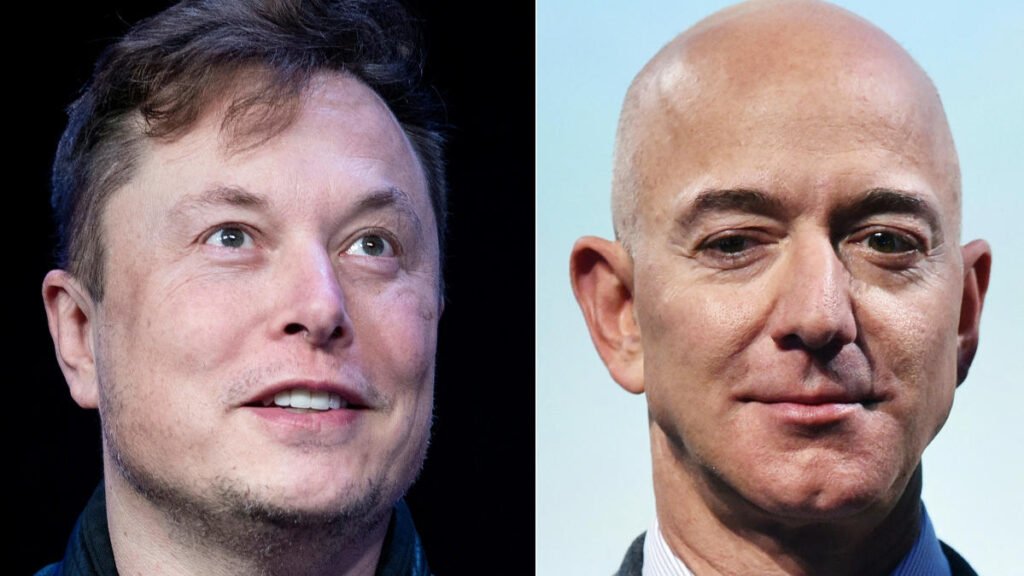Billionaires like Tesla CEO Elon Musk (TSLA) and Amazon founder Jeff Bezos (AMZN) are pouring money into space exploration, which is expensive, labor-intensive, time-consuming and risky — with no guarantees.
Derrick Pitts, chief astronomer at the Franklin Institute, says it’s “exciting” that private money is flowing into space exploration, but the question remains: How to make a profit? “Right now, the billions of dollars they’re pouring into building the infrastructure needed to do the work that has to be done off-Earth, in space, which is very hard,” Pitts explains, adding that “it’s going to take a long time to establish the processes to actually turn a product around and make money.”
One area where investors might see profits a little sooner is “the practical technologies that come out of all the developments that are being made to actually build space infrastructure,” Pitts said. “What technologies are coming out of this that can be used on Earth?”
Check out this week’s special article from Yahoo Finance as part of our “Space Race: Investing in the Final Frontier” series.
To learn more about expert insights and the latest market trends, click here to watch this full episode of Catalysts.
This post was written by Stephanie Mikulich.
Video Transcript
Elon Musk, Jeff Bezos, Richard Branson.
These are the billionaires leading the space race, setting lofty goals for themselves and investing so far in the future of space travel.
This year, $6.5 billion in P investment is expected to be made in the space industry.
That’s according to Space Capital.
Then this week, Bloomberg reported that SpaceX is selling shares that value the company at about $210 billion.
But our next guest says that even if he joins our group, it may take generations for the investment to pay off.
To kick off our discussion, we spoke with Derek Pickus, Chief Astronomer at the Franklin Institute.
I’m glad you came here.
Thank you so much for being here with us.
I’m interested in your views on billionaire investing in this area in general.
Considering you yourself are an expert on space.
What do you think? What do you think?
Well, it’s really exciting that we’re putting all this money into working with organizations other than national space agencies like NASA and Russia’s ROS Cosmos to expand our capabilities to reach low Earth orbit and beyond.
Yes, you know, Ariana Spa in France.
But the question now is, how can they actually generate income from this?
Because the billion dollars they’re putting into it right now is going to build the infrastructure needed to do the work that has to be done in space outside of Earth.
And it’s very difficult.
There is a very high risk.
It takes a lot of money and time to develop a process that can actually turn a product around and generate revenue.
Derek, for investors who are looking to get some kind of return, maybe in a more timely fashion, what do you think about the catalyst or in terms of what’s going to change for them in the next few months? I think the next few years is probably too short a time frame.
What does that mean?
What are those investments more precisely?
Well, I think these investments really need to be looking at what are the practical technologies that are going to come out of all the development of technology that’s being developed to actually build this space infrastructure.
So what technologies coming out of this can be used on Earth and encouraging those developments is actually important and could work because those technologies are being built for use in space.
Their applications on Earth could actually pave the way for those investments to start paying dividends sooner than two or three generations from now.
Derek, throughout your career, have you seen how the combination of private and public sectors has had a different impact on the growth of technology depending on the source of investment and each sector?
What’s interesting is that on the public side, the money that the government invests turns into technology sharing for the rest of the public and the country, because at least with respect to NASA, technology sharing is part of the investment that the government is making in developing the national space program.
But on the other hand, private companies have ownership rights to all of the technology they develop.
So in some ways it’s easier to access these technologies through the public sector, through national space agencies, than through the private sector.

